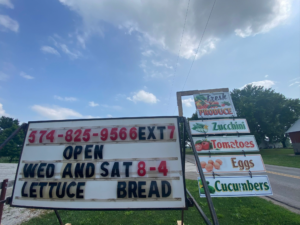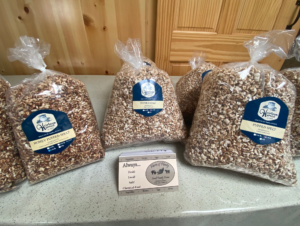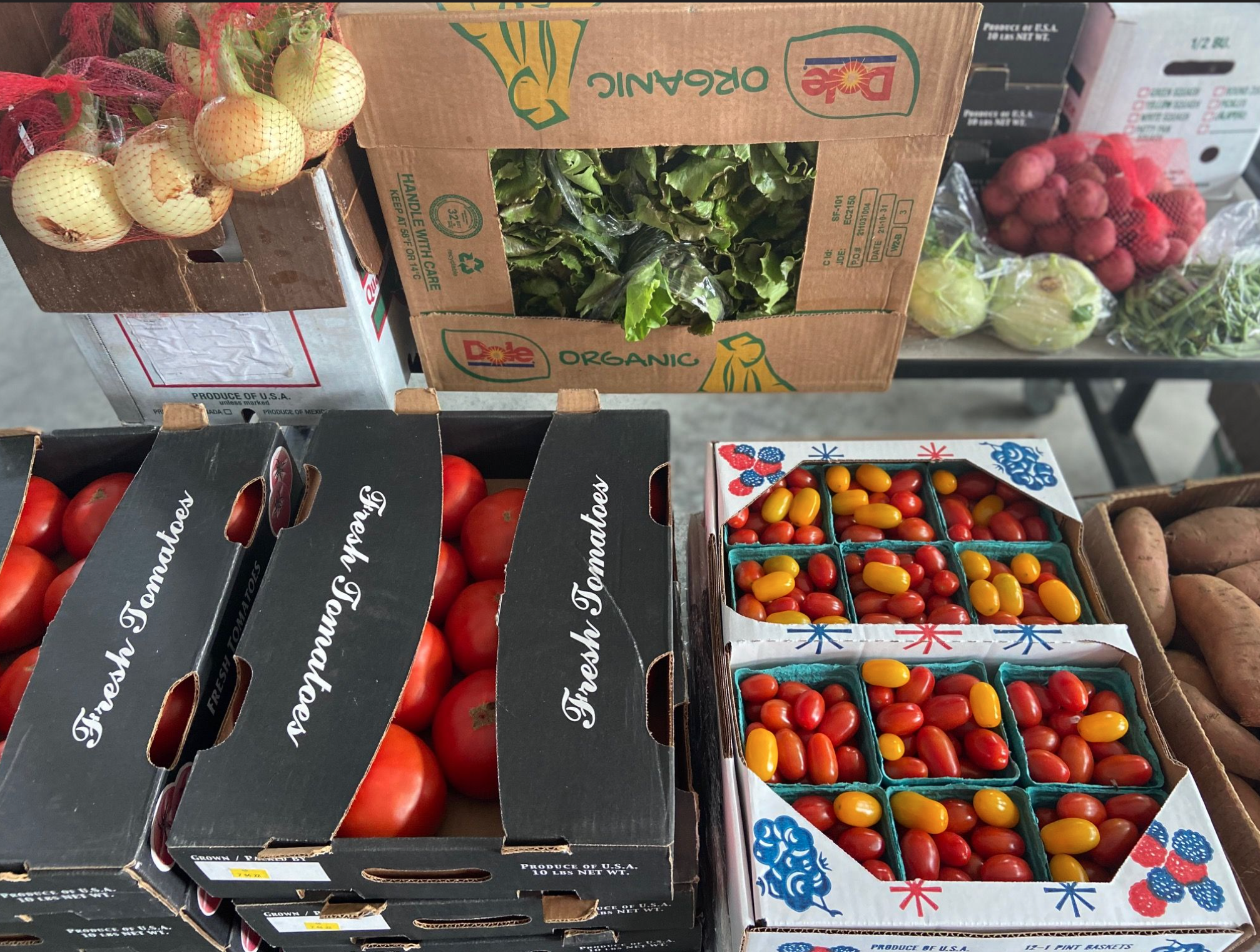Horn of Plenty Is a True Community Undertaking
Writer / Amy Lant-Wenger
Photography Provided
One of the very first things that commands notice in rural areas of north-central Indiana is the abundance of lush farmland. Almost as far as the eyes can see, acres of soil serve as the fertile grounds through which an abundance of crops are grown. It is an example of nature at its finest, a creation born of necessity. To see these practices and principles being faithfully executed, so to speak, consider a visit to Horn of Plenty in rural Middlebury.
 Located among a quaint and quiet farmstead owned by Noah and Rebecca Miller, it is a business venture that encompasses far more than a simple warehouse storefront. It is a true community endeavor.
Located among a quaint and quiet farmstead owned by Noah and Rebecca Miller, it is a business venture that encompasses far more than a simple warehouse storefront. It is a true community endeavor.
Horn of Plenty is a name that represents an ever-blossoming agricultural cooperative – one that is fueled entirely by the efforts of local farmers. The co-op membership consists of more than 50 farming families, all of whom contribute homegrown meats, eggs and produce for retail sale. By weaving together this communal enterprise, the partnerships are most beneficial to everyone involved. It is a means of income for the growers and their families, and the consumers come away with the reassurance that they’re getting the finest product available while supporting local, small businesses.
The Horn of Plenty idea was conceived more than a decade ago when a group of farmers convened to discuss ways that they could exercise some control over how and where their crops would go, in a manner that would be most advantageous to both the sellers and the buyers. “The main drive was to let the farmers decide,” recalls David Yoder, who currently oversees the sales aspect of Horn of Plenty.
Among the families who contribute to the collaborative cycle, there are those who supply food on a full-time basis, while others flow with the seasons. In order to join, there is a series of guidelines that must be stringently followed, including a commitment to chemical-free production. There are no enhancements, no GMOs and no shortcuts, and only organic methods for disease suppression and pest control are used. The items must also be meticulously cleaned and packaged according to the bylaws.
 Presently, Horn of Plenty sells beef, chicken, pork, turkey, duck, lamb and fresh brown eggs. Produce varies with the calendar, but typically includes tomatoes, green beans, cucumbers, zucchini, berries, melons and sweet corn, to name a few. Peak strawberry season has passed, the men advise, but just around the bend there will be sweet corn, melons and blueberries – some of the best flavors of summer.
Presently, Horn of Plenty sells beef, chicken, pork, turkey, duck, lamb and fresh brown eggs. Produce varies with the calendar, but typically includes tomatoes, green beans, cucumbers, zucchini, berries, melons and sweet corn, to name a few. Peak strawberry season has passed, the men advise, but just around the bend there will be sweet corn, melons and blueberries – some of the best flavors of summer.
Because of this natural approach to raising food, Horn of Plenty is actually a year-round operation in which everyone is mindful of even the smallest details, such as planning the planting, soil conditions and weather. As is generally the case with Midwestern climate conditions, things can and do change rapidly.
Miller and Yoder both share insights on what a typical year can look like when preparing for a growing season. The farmers involved in the co-op design their crops through planting specifications, followed later by the delivery of their items to the main Middlebury site through a courier delivery service. There is a commission percentage off the overhead costs, and new members experience this after they receive their first payout. The items are marketed for various outlets including wholesale and retail. The loyalty to their customers is also evident in that they are able to keep folks apprised on what types of produce are available, what their peak seasons are and what awaits on the horizon. Occasionally some of the crops are sold at nearby auctions. At all times, in all ways, “we only sell what we grow,” Yoder says.
After 12 years, Horn of Plenty has solidified itself as a rural institution with a professional pedigree. Yet there is more to accomplish in the future according to Miller. “The growth curve has been so steep and we’ve been so busy trying to keep up with the growth,” he says. Because of the success they have achieved thus far, the investors were able to finance the construction of a main warehouse in Middlebury back in 2019. Miller hopes to have some activity on the new loading docks, with the assistance of semis to transport larger quantities. There are also plans to install extra coolers for more storage of eggs and other perishable goods.
Currently, Horn of Plenty products can be found at farmers markets in the region including Elkhart, South Bend and Mishawaka. The store in Middlebury is also open, and is located at 54682 County Road 43. To inquire about featured stock and hours of operation, contact the warehouse at 574-825-9566, ext. 2 or 3, or visit their website at www.elkhartfood.org.










